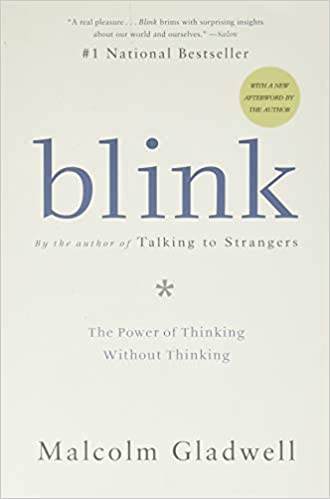If confidence could be bottled up or if it comes in a pill, then millions will line up to take it, but little do they know that the secrets to speaking with confidence are right at their fingertips!
Confidence is one of those traits and skills that we applaud other people for and cringe at their absence in ourselves. Yes, some people are born confident, but for others, it’s a skill that can easily be worked on.
Today, we’re bringing you the surprising secrets to speaking with confidence! Let’s dive right in. These tips will help you improve nearly every area of your life. That promotion you’ve been meaning to talk to your boss about? That crush you’ve been meaning to ask out? A big presentation or performance coming up? Let’s start honing in that confidence.

Slow Down
What’s one thing you may have noticed about all confident speakers? They don’t ramble a million words per minute, that’s for one. Carmine Gallo, who wrote Talk Like TED, says that the ideal rate of speech whenever you need to speak publicly is about 190 words per minute.
When you slow down to speak at this pace, the people you’re talking to feel like you’re having a conversation with them over a meal more than you’re talking at them.
Slow down when you’re speaking. In contrast, don’t speak too slowly. If you hesitate too much and speak too slowly, then you risk the person you’re talking to getting bored and disinterested. And hey, here’s another piece of advice! Don’t speak too quickly either. People who speak too quickly come off as nervous and like they don’t know what they’re talking about, so they’re trying to get whatever they’re saying done as fast as possible. Fast speakers also give the impression that they’re insecure or lack self-control.
If all of these somewhat contrasting tips confuse you, then follow the first one. 190 words per minute are the way to go. You want to speak with purpose, calmly, and at a relaxed pace. This purposeful manner oozes confidence and gives the impression that you’re in control.
Know When to Start Speaking
Rushing into a conversation is not what confident speakers do. It’s the opposite. Maybe it’s the nervousness, but nervous speakers tend to start talking during the same moment the previous person is just finishing speaking– or even moments before. They then later cringe when recalling the awkward moment.
It goes without saying that you should wait for the person to finish speaking. Don’t start immediately after either. You want to seem interested, not overly eager. You also don’t want the person to feel like you were just waiting for your turn to speak and weren’t listening to them. Aim for waiting for about a second or two after the person finishes speaking before you take over the conversation.
When you take your time like this, you show that you’re confident, relaxed, and you show the other person that you’re engaged in the conversation.
Stop Using Filler Words
Filler words include anything from “umm” and “uh” to “like” and “so” and so on. These words are called “filler” because they take up unnecessary space in the conversation while you’re thinking of what to say next. Unfortunately, filling your conversation with unnecessary words makes you seem like you’re uncertain.
But the matter is– sometimes you don’t know what you want to say next and you need to think a little. So what now? How can you fill the gap in the conversation? The answer is simpler than you think. You fill it with nothing. Stop using filler words and let the moment pass in silence.
The next time you need to think over something before speaking, pause. Believe it or not, but these silent pauses actually hold a lot of power as they build up anticipation and tension to suck people in further. Soon enough, people will start hanging off your words, eagerly awaiting the silence to end.
Filler words also extend to repeating yourself unnecessarily. And remember what we said about wanting to appear purposeful and ooze confidence? Starting your sentences with phrases such as “Sorry,” “I think,” “Well,” “I mean,” “This is just my opinion,” and empty and negative prefaces such as these only work towards lessening the impact of what you’re saying.
The solution is practice. Record yourself or have someone record you while speaking. That way, you can notice all these repetitive phrases and empty words. Now, you can switch them with other meaningful words that are more persuasive, which leads us to our next secret.
Don’t Put a Question Mark at the End of Your Statements
Trailing off while saying what should be a statement is not something any confident speaker will do. There is nothing wrong with asking questions, asking for opinion, approval, and wanting to get some missing information. It makes you sound vulnerable, but it’s a necessary risk to take. That said, why extend that vulnerable to when you’re normally speaking or when you’re stating a fact?
Trailing off, letting your voice fade away towards the end of a sentence, or letting it creep upward doesn’t exactly project confidence. Your tone should be even and strong. Your statement should be finished with a period, not a question mark.
Here are some other examples. Say what you want, then be quiet. Don’t trail off or anything. If you’re trying to negotiate something, like a business deal, then present your argument, state all your terms, and be silent. It’s easy to fall back on empty words, apologies, backing away, offering alternatives, and revealing your insecurity when the other person doesn’t respond to what you have just said.
If you’re not sure what to do or how long you should wait after saying something, then try counting backward from ten or twenty in your mind. By doing this, you avoid that nervous chatter and meaningless conversations. This is the mark of a pro.
Don’t Be Too Loud
Somehow, along the line, people started mistaking loudness and raising their voice for confidence when it’s simply not the truth. Speaking loudly isn’t the same. Of course, you should speak loud enough to be heard, but not enough to make that other person walk away with ringing in their ear and say to the friend, “That guy was really loud, wasn’t he?”
One of the invaluable secrets to speaking with confidence is your cadence, which means the rhythm of your voice. Your pitch and cadence portray more than you think. If you want to own the conversation you’re in, your voice should be smooth and in a low pitch. Don’t change the pitch too often from high to low and back again. Steady wins the race.
Breathe
That’s it. Just breathe. As you speak, don’t forget to take slow, deep, steady, and calming breaths. Why? Other than the obvious reasons, this method of breathing ensures that you’re breathing deeply into your stomach and not just through your chest. This results in your voice coming out steady, your body language is relaxed, and not coming off as breathless or unsure.
Smile
Smiling has a dramatic effect on both the speaker and the people they’re speaking to. You know what they say about smiling being contagious. Well, add to that statement that it adds confidence. Make sure to insert a smile every once in a while during the conversation. According to Christine Clapp, who’s a public speaking expert at George Washington University, “Smiling not only makes your voice more pleasant to listen to, it also conveys confidence . . . You will appear friendly, approachable, and composed.”
Practise
Sometimes, it comes down to this. Speaking fluently and with confidence can be an acquired skill. And what do skills need? Practice, practice, and more practice. It’s the key to mastering anything. Practice that skill often, and you’ll reap the rewards.
If there’s an upcoming conversation that you’re anxious to have, such as telling your boss something, asking for a raise or a promotion– or if you’re up for speaking in front of a crowd, then practicing what you’re saying before can make or break your speech. If you can, record yourself to see if you have applied all our tips and tricks and have the pacing, volume, and pauses down. Alright now, are you ready to face the world? This confident tone that you know will kickstart all your dreams. It’s a fact that confident speakers command rooms when they speak, earn respect, and hold authority in the workplace. And now that you’re privy to these surprising secrets, you can be just as powerful.
What Is Snapreads?

With the Snapreads app, you get the key insights from the best nonfiction books in minutes, not hours or days. Our experts transform these books into quick, memorable, easy-to-understand insights you can read when you have the time or listen to them on the go.
